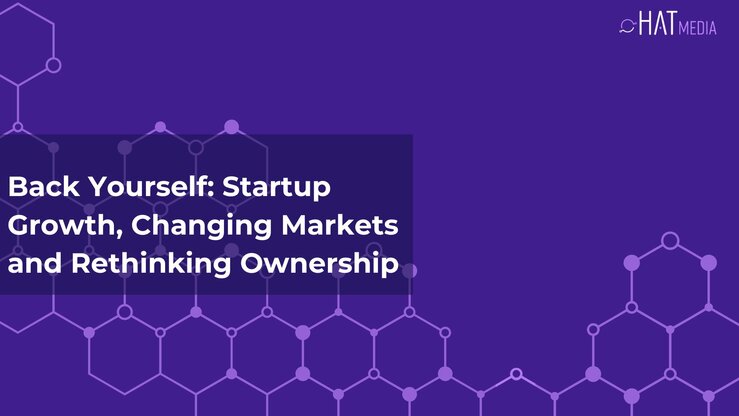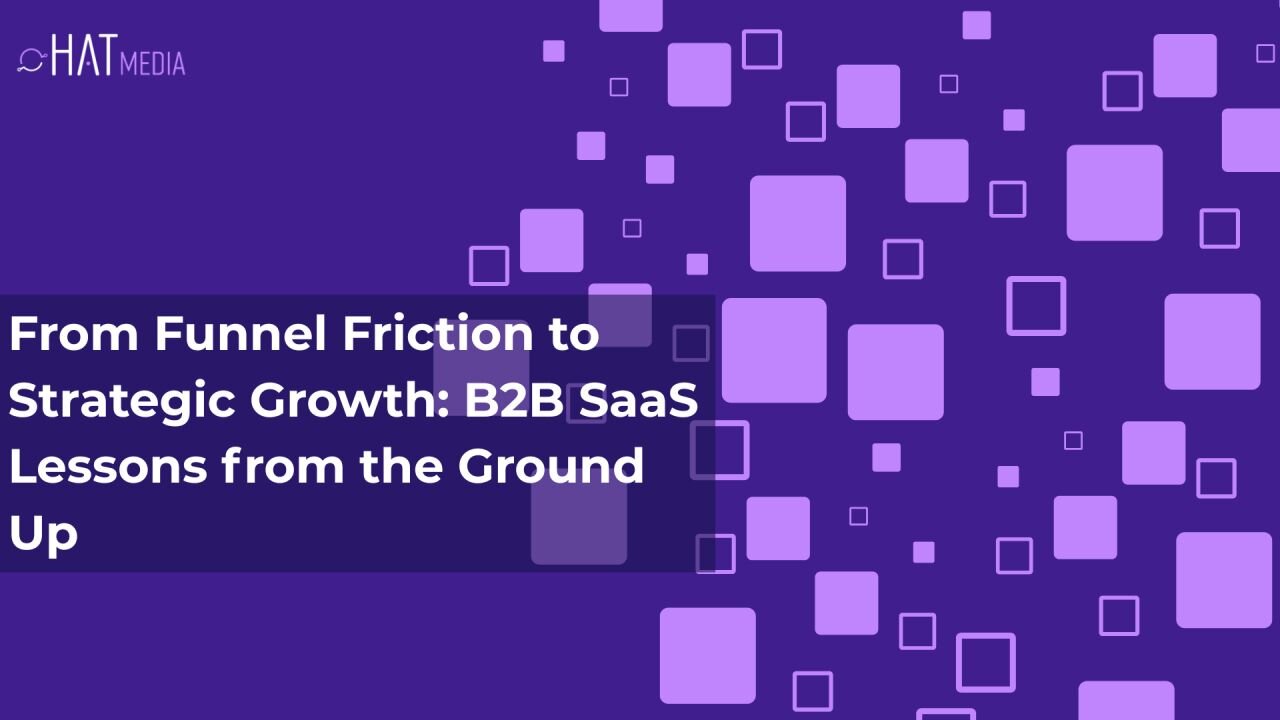Back Yourself: Startup Growth, Changing Markets and Rethinking Ownership

If there’s one theme that cuts across industries, business models, and market cycles, it’s this: building something new is rarely a straight line. In the latest episode of SaaS Stories, Sam Zammit, Chief Product Officer and Co-Founder of Karmo, unpacked lessons from his own unconventional career journey. But rather than just tracing a personal biography, our conversation surfaced valuable takeaways for anyone navigating the unpredictable terrain of SaaS, B2B, or startup life.
From understanding your core problem better than anyone else to adapting business models in changing markets, the episode offered a set of practical insights you can apply whether you’re building software, running operations, or rethinking customer experience in a mature industry.
1. Non-Linear Journeys Are the Norm
The myth of the perfectly planned career is one that founders and leaders need to abandon early. Zammit's own path, from the military to consulting to technology and mobility, reflects a truth many of us discover: opportunities emerge where curiosity and capability intersect.
In SaaS and B2B, that means embracing varied experiences as assets. Cross-disciplinary backgrounds often bring fresh ways of solving problems. If you’ve managed logistics in a high-pressure environment, run lean teams, or balanced operational and product priorities, you’re already better equipped for startup uncertainty than you might think.
The insight here isn’t to chase randomness, but to accept that your growth path won’t look like a straight ladder. The ability to adapt to new environments, carry forward core skills, and see patterns across industries is what will differentiate your decision-making when conditions shift.
2. Focus Relentlessly on the Core Problem
One of the most powerful ideas in the discussion was the need to stay in love with the problem you set out to solve. In fast-moving businesses, it’s easy to be distracted by funding challenges, operational fires, or shiny new opportunities. But the ventures that endure are those where leadership remains obsessively committed to solving the central customer pain point.
Zammit highlighted how founders often face long periods of slow progress before any noticeable “hockey stick” growth appears. The temptation to pivot prematurely or dilute focus can be strong. But maintaining that core vision, even while adjusting tactics, is key to long-term success.
For SaaS and B2B marketers, this means continually re-anchoring your messaging and campaigns to the real problem your product solves, not just the features you’ve built.
3. Grit Outlasts Glamour
The stories we celebrate in the business press often start at the tipping point: the sudden growth curve, the big funding round, the market breakthrough. What gets overlooked is the multi-year grind that precedes it.
Zammit’s example of a peer’s four-year slog before seeing traction is a reminder that persistence, more than inspiration, drives outcomes. This persistence isn’t blind; it’s informed by deep market understanding, ongoing feedback, and incremental wins.
For teams, grit also means maintaining operational discipline during the less glamorous phases. Clear priorities, consistent communication, and a focus on execution keep momentum alive while you wait for the external signs of success.
4. Educate the Market, Don’t Just Sell to It
Karmo operates in car subscription, a category that’s still unfamiliar to many Australians. Here, marketing isn’t just about lead generation, it’s about category creation.
The same applies to SaaS solutions in emerging niches. Your prospective customers might not yet have a mental model for what you do. That means your campaigns must do double duty: explain the category and position your product as the leader within it.
In Karmo’s case, this means clarifying how subscription differs from leasing, rental, or ownership, and why it might be better aligned to changing consumer priorities. In SaaS, it could mean breaking down legacy workflows and showing how your product offers a fundamentally better way to work.
5. Localisation is a Competitive Advantage
One striking operational insight was Karmo’s approach to local market execution. While headquartered in Brisbane, they run tailored campaigns and have operational staff embedded in every major Australian city they serve.
For SaaS businesses expanding across geographies or sectors, the equivalent is customising marketing and customer experience for local context. That could be as simple as changing examples and terminology in your ads, or as complex as adapting your onboarding and support to fit local norms.
In every case, the goal is the same: ensure your solution feels relevant and responsive, not generic.
6. Build Teams Like Products
Perhaps the most transferable leadership insight from Zammit’s experience is this: treat your team as your most important product.
That means designing roles, responsibilities, and culture with intention. Provide clarity on where you’re headed, what success looks like, and each person’s role in achieving it. This isn’t just “soft skills” — it’s how you create the environment for consistent execution in volatile conditions.
In SaaS, where speed matters and resources are finite, this clarity can be the difference between shipping a feature in three weeks or three months.
7. Be Critical About Where You Spend Your Time
Zammit shared advice from a friend who calculated the exact number of working days left in his career, realising each year represented 5% of that total. The message was clear: time is non-renewable.
For founders and operators, this isn’t just about work–life balance (though that’s essential). It’s about making deliberate choices on where to invest your energy, which customers to pursue, and which initiatives to prioritise. The compounding effect of those choices will define your business more than any single deal or campaign.
Applying These Insights to SaaS and B2B
If you strip away the specifics of Karmo’s industry, the patterns remain. Diverse experiences create better problem solvers. Long-term focus on a core problem beats opportunistic pivots. Market education is as important as conversion in new categories. Localisation builds trust and increases conversion rates. Clear leadership and role definition keep teams aligned in chaos. Strategic time allocation compounds over years.
These are not just “startup lessons.” They’re frameworks for running any organisation that wants to scale sustainably.
Listen to the Full Conversation
If these insights resonated, you’ll want to hear the full conversation with Sam Zammit. In the episode, we explore each of these ideas in more depth, with real examples from Karmo’s growth journey and practical tips for navigating uncertainty.

